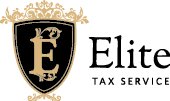Taxes are complicated because tax laws are filled with incomprehensible jargon and schools don’t put enough effort to educate students about filing them. This gap in knowledge often leaves students confused and wondering whether they need to file a return. Even if you are unemployed, filing taxes is encouraged. In fact, there are certain situations when you must file a return and may even be beneficial to do so. Speak with a tax specialist at Elite Tax for more details. Below is some general tax-related know-how to avoid any confusion that may come as the 2017 tax season approaches.
When Should Students File a Return?
If you have to pay tax for 2016 or the CRA sent you a request, then it is mandatory to file a return by May 1st, 2017. In addition to this, you will want to do your taxes in order to claim any of the following:
- A refund
- The goods and services tax/harmonized sales tax credit, including related provincial credits
- If you have children and want to start or continue receiving Canada child benefit payments
- Child care expenses
- Your tuition, education and textbook credits
- Interest paid on your student loans
- Moving expenses if you moved to start your studies
- Transportation expenses, including purchase of public transit passes
There have been recent changes in tax law regarding the education and textbook tax credit. Effective January 1, 2017, this credit is being phased out, although it can still be claimed in your 2016 return. Any unused credits accrued from years prior to 2017 can be claimed in the future. The tuition tax credit, a non-refundable amount used to lower any taxes you must pay, is still in effect.
Can an RESP be Taxed?
If you are currently a student and pay tuition with Education Assistance Payments from an RESP investment, you will not be charged tax, unless you earn over your basic exemption – as of 2016 that is $11,474. Although growth in your RESP is taxable, the government grants and actual contributions into the RESP are untaxed when withdrawn. However, since students tend to fall into the lower tax bracket, they will generally not pay any taxes.
Here’s an example: If your parents invested $2,500.00 for 18 years, the total present-day amount, which includes government grants, could be approximately $66,949.00. This amount is made up of $45,000.00 in after-tax contributions, $7,200.00 from the Canada Education Savings Grant, and $14,749.00 from interest, dividends and capital gains (assumes approximately a 2.6% average annual rate of return). Therefore, you can withdraw up to $45,000.00 without paying any taxes, since your parents already paid taxes on this amount over the last 18 years. Only the grant and the earned income are taxable.
Luckily, you don’t need to keep track of what portion of your RESP withdrawals are taxed; that is your financial institution’s responsibility. The EAP amounts are reported in box 42 of a T4A Income Tax Information slip provided by your financial institution and must be submitted when filing your return. If you do not understand the numbers, don’t worry, tax experts can simplify the details as they walk you through the filing process.
The life of a student is far from easy, but adding post-secondary fees and tax worries only increases stress. However, filing taxes isn’t as difficult as it may seem, especially when you have the help of an Elite Tax professional. Contact us today to solve your tax filing woes.

